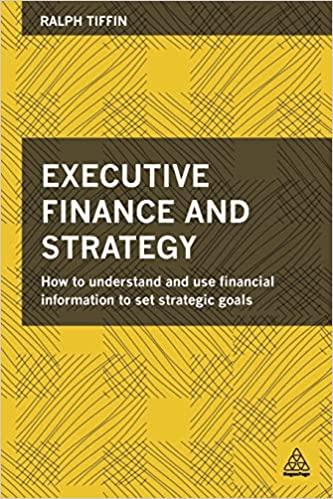Question
The below provides information for parts 1-4 of this question. You are presented with information concerning two companies. Both have the same degree of business
The below provides information for parts 1-4 of this question. You are presented with information concerning two companies. Both have the same degree of business risk. Company U is financed entirely with common stock while Company L is financed with $200,000 of perpetual debt that has a coupon interest rate of 7.5% and a yield to maturity of 7.5% (it is price at its face value). The expected net operating income of both companies is $75,000 a year forever. Company U has a cost of equity of 10%, while Company L has a cost of equity of 12%. Assume there are no taxes in this world. PART 1: For each company, calculate the (1) value of their equity and (2) the total market value of the company. (show the values of the debt, stock, total company for each)
PART 2: Are they in equilibrium? If not, which is overvalued? What is required for them to be in equilibrium?
PART 3: If you own 20% of the stock in the overvalued company, what would you do? (If neither is overvalued state it and your action.)
PART 4: On the basis of what you did in (c), calculate the return after the switch and what you would have gotten had you not switched?
Step by Step Solution
There are 3 Steps involved in it
Step: 1

Get Instant Access to Expert-Tailored Solutions
See step-by-step solutions with expert insights and AI powered tools for academic success
Step: 2

Step: 3

Ace Your Homework with AI
Get the answers you need in no time with our AI-driven, step-by-step assistance
Get Started


